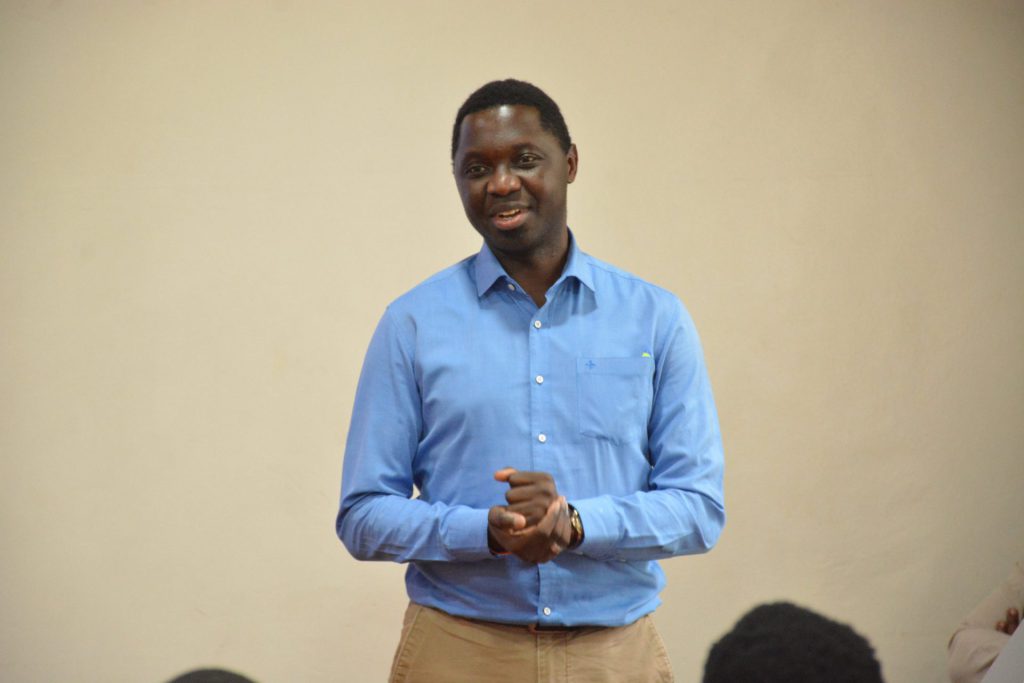First Reading: Joshua 5:9–12; Responsorial Psalm: Psalms 34:2-3, 4-5, 6-7; Second Reading: 2 Corinthians 5:17-21;
Gospel: Luke 15:1–3, 11b–32

Fr. Patrice Ndayisenga SJ., Director, Jesuit Urumuri Centre, Rwanda.
In 1994, a genocide occurred in Rwanda involving mainly two ethnic groups. Among the perpetrators and the victims were staunch Christian believers and regular churchgoers. The Catholic Church lost its members among whom were priests and many other individuals in consecrated life; but she also counted, among her followers, people who bore heavy responsibilities in the planning and execution of killings. The daunting path to reconciliation in the aftermath of the genocide revolved around the challenge of reinstating her members who were the perpetrators of the atrocities to bring them back into the same fold with the survivors of the same atrocities.
Reflecting on the image of the merciful father that today’s liturgy has proposed us, I can’t help but recall to mind the perplexity and the isolation of the Catholic Church in the aftermath of the genocide in Rwanda. The Church was seen as a victim who needs compassion, sympathy, and comfort for the sons and daughters of hers that had lost their lives to the genocide perpetrators. At the same time, the Church was seen as an accomplice given the fact that her members who played significant roles in the evangelization of Rwanda held also serious responsibilities in the killings of their fellow citizens.
Like the Catholic Church in Rwanda, the Gospel reading, Luke 15:1–3, 11b–32, which recounts the Parable of the Prodigal Son, we see a merciful father torn apart, left dismally in solitude upon the return of his prodigal son. Beside the festive welcoming joy, the father is suddenly drawn to reconcile with a son he had all along considered his best confidant: “my son, you are here with me always; everything I have is yours.” The father who out of compassion ran out of his way, to organize a reconciliatory banquet to reinstate his returning lost son, suffers rejection from a man/son whom he considered faithful companion and rightful stakeholder of all his possessions.
The humbling experience of the merciful father can teach us something about the path to true reconciliation among ourselves, with God and with the rest of the creation around us. The merciful father stands between a son who is known as a good agent and another one the whole world takes for a lost ship. He is confronted with the challenge of reconciling the good and the bad. Since both the good and the bad boys are all his offspring, he has no choice but to open his arms to welcome all. He takes the bitter pill of risking the respect of his elder son to demonstrate the fatherly love of his younger son. It takes humility, compassion, and love to truly show mercy and be indeed forgiving.
In an imperfect world, we sometimes complain and seriously rebel against God at the sight of evildoers’ prosperous growth. Maybe the merciful father can help us understand that God’s love for his creatures is all inclusive. His love is mercy shown and bestowed unto the good and the bad. Needless to emphasize that similarly Jesus’ own sacrifice on the cross is for the redemption of all, including the outcast and his own killers.
Amen.


Comments are closed.